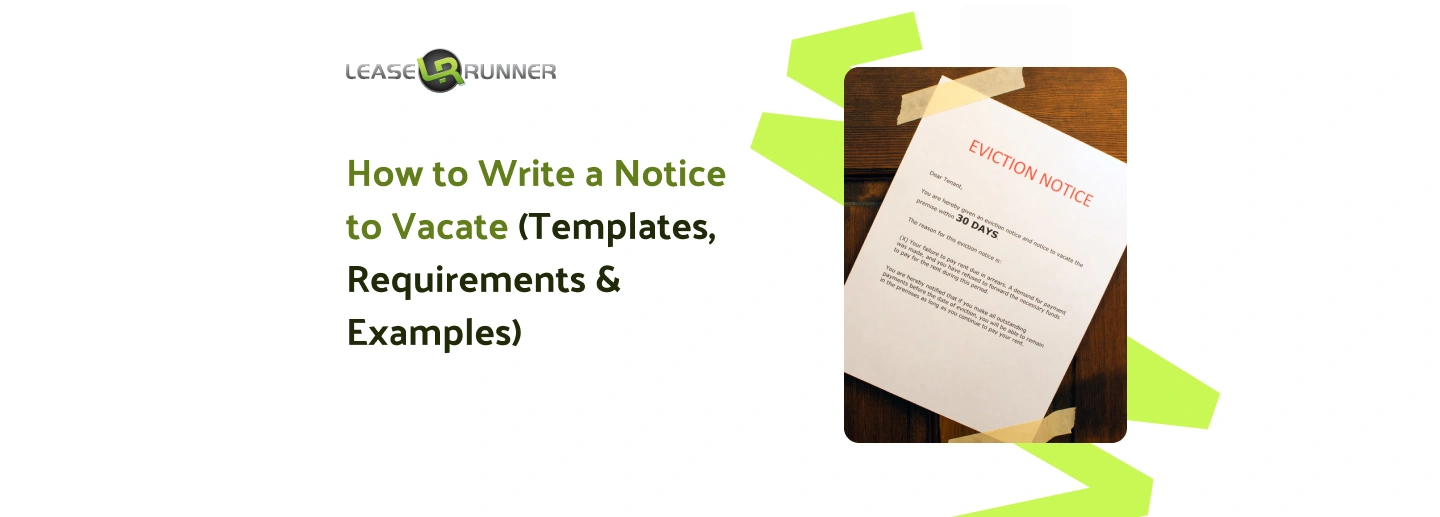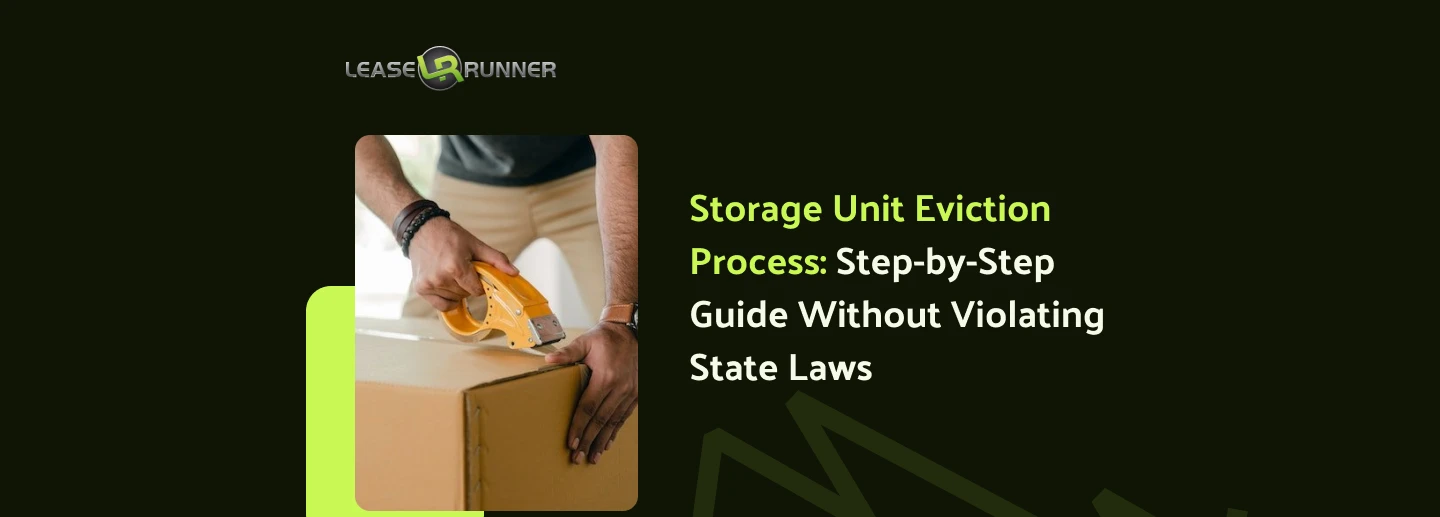A valid notice is the backbone of a legal eviction, so understanding what can void a three-day notice is vital for landlords who want to avoid costly setbacks. Small mistakes—such as stating the wrong rent amount or serving a notice incorrectly—can make an entire eviction process invalid.
For landlords in Ohio and across the country, learning what makes a notice to quit and an eviction notice invalid can save you from court delays, extra costs, and tenant claims.
This guide explains it all, using examples and state-specific details to clarify what a 3-day notice is, how to serve it, and how rent pay day’s notice or quit rules actually work in practice.

Key Takeaway Table: Quick Facts Landlords Must Know
What Is a Three-Day Notice to Pay or Quit?

A three-day notice to pay rent or quit (or simply known as the three-day notice) is a formal legal document that a landlord serves to a tenant. It serves as a mandatory warning, informing the tenant they have a specific period, typically three days, to either pay their overdue rent or fix another curable lease violation, or else vacate the property.
This initial step is required in most states before a landlord can legally proceed with an eviction case. It is a heavily regulated document, and its validity hinges on strict adherence to state and local laws.
To be legally valid, the notice must include several key elements:
- The full names of the tenant(s) and landlord(s).
- The exact, correct amount of rent that is past due.
- Clear instructions on how and where the tenant can make the payment.
- A specific description of the lease violation, if not related to rent.
- The specific number of days given to the tenant to comply.
After the notice period expires, the landlord cannot immediately remove the tenant. The notice only grants the landlord the right to file an eviction lawsuit (also known as an Unlawful Detainer lawsuit) with the court.
Even in urgent cases, skipping any of the required elements can lead a court to rule that the notice to quit is invalid, forcing the landlord to start the entire process over.
What Can Void a Three‑Day Notice? Top 7 Most Common Mistakes?
Knowing what can void a three-day notice stops avoidable errors before they waste your time and resources. In some cases, a mistake can cause damage to the landlord, such as the case of the California landlord who lost a court battle and had to pay the tenant’s legal fees because of a defective notice. These are the mistakes most likely to render your eviction attempt invalid:
1. Incorrect Rent Amount
This error means the rent amount listed on the notice does not match the actual amount the tenant owes. Always list only the overdue rent—not late fees, utilities (unless the lease and law allow), or other charges. Overstating the owed amount is a major pitfall, especially in states like California and Ohio.
If you accidentally request more than what is due, courts view the notice as defective, forcing you to restart the process. Even if the tenant pays the correct rent amount, a notice that demands an incorrect, higher amount can still be challenged and deemed invalid by the court.
Example: Your lease says rent is $1,200, but you include a $50 late fee and a $30 trash bill (not allowed by local law). The tenant can challenge the notice and have it voided.
2. Missing or Inaccurate Required Information
This means the notice omits or incorrectly states key legal details. Every detail matters. Omitting the tenant’s legal name, using a nickname, or failing to include the full unit address will void the notice. Any vague or missing information means courts may dismiss your eviction outright.
This causes the eviction to be delayed significantly as you must restart the process by creating and serving a new, valid notice, taking up valuable time and resources. Legal information components typically required include:
- Tenant and landlord's full legal names
- The specific property address, including apartment or unit number
- The exact amount of rent owed
- A clear deadline for compliance
- Instructions for payment
- A statement of the tenant’s right to cure the violation or vacate
Example: The notice refers to “Bob Smith” when the lease lists “Robert A. Smith.” Or you forget to write the apartment number—either is grounds for an invalid notice.
3. Ambiguous or Unclear Payment Instructions
This error occurs when the notice fails to clearly specify how, where, and when the tenant can pay the overdue rent. Courts may reject a notice if the instructions are vague, as this can be seen as an attempt to prevent the tenant from complying.
The three-day notice to pay rent or quit must specify exactly where, how, and when the tenant can pay the overdue amount. Unclear office hours, ambiguous payment locations, or accepting only checks (when the law requires cash/certified funds) can all void the process. Always provide the exact address, payment method, contact, and office hours.
If you realize the payment info is unclear, it’s best to create and serve a corrected notice immediately, as the clarity of payment instructions is essential to prove the tenant had a fair opportunity to comply with the notice.
Example: The notice says “Pay at the management office” but doesn’t provide the address, hours, or contact name, so a tenant can claim they couldn’t comply.
4. Improper Service of Notice
Improper service of a notice, such as a three-day notice to pay rent or quit, generally means the landlord failed to deliver the eviction notice in a legally required manner. Proper service is the #1 technical reason eviction notices are thrown out.
Service rules vary by state but often include in-person, official mail, or—in some locations—posting and mailing as last resorts. Not following these steps means you can’t start a legal notice. Additional common lawful methods of service include:
- Personal service to the tenant
- Substituted service (giving the notice to another adult at the property)
- Certified or registered mail with a return receipt
Example: Posting the notice on the tenant’s door without mailing a copy when the law requires both steps; serving the notice on a holiday or weekend, which isn’t allowed in many states. Courts often dismiss cases solely due to improper service, even when all other elements are correct.
5. Insufficient Notice Period
An insufficient notice period means the landlord has not given the tenant the full number of days required by law to respond to the notice. The three-day notice period must follow business days, not include the service day, and not run over weekends or court holidays in jurisdictions like California and Florida.
Giving even a few hours less than required will void the notice and stop the eviction. If the notice period is too short, the tenant is protected, and the notice is legally invalid. Landlords should also be aware of any local or time-specific exceptions, such as COVID-19 extensions, that may require a longer notice period than usual.
Example: You serve the notice at 5 pm on Friday and count Saturday/Sunday as days one and two. This mistake leads to a court dismissal—three full business days are required.
6. Retaliation or Discrimination
This occurs when a landlord serves a notice to evict a tenant because the tenant has exercised a legal right (retaliation) or because of their protected class status (discrimination).
Retaliating against tenants (for example, for reporting health violations) or using eviction notices for discriminatory reasons (due to race, religion, etc.) will not only void your notice; such actions can result in legal and civil penalties.
Even if the notice is technically correct, courts can invalidate it if it's deemed retaliatory or discriminatory. Acts considered retaliation include:
- Increasing rent after a tenant files a complaint.
- Refusing to perform maintenance after a complaint.
- Issuing a notice to vacate shortly after a tenant reports a violation. Tenants have the right to a safe living environment without fear of retaliation.
Example: Issuing a notice right after a tenant files a safety complaint to a local agency. Courts can see this as unlawful retaliation and throw out your case.
7. Failure to Comply with Local Ordinances
This is when a landlord fails to follow specific laws that are unique to their city or county, which are often in addition to state laws. What can void a three-day notice in Ohio and other states? Every region has additional requirements for notice durations and legal references.
For instance, based on Ohio’s landlord-tenant laws, they expect exact language on the form and certain service steps. Ignoring city additions (like extra disclosures or special COVID extensions) voids your notice.
Example: Using a generic online template that doesn’t include Ohio’s required three-day warning statement or other state/local disclosures.
All seven of these mistakes can cause significant financial and legal damage to landlords, leading to months of delays, lost rent, court fees, and potential liability.
How to Serve a Three-Day Notice the Right Way?

To avoid the traps of what can void a three-day notice, serving it properly is critical. Here’s a clear process for each step:
1. Prepare the Notice Correctly
Use a trusted state-compliant template; don’t improvise or leave out required information. Tailor it to fit your lease and the state/local laws. Our detailed guide on how to write an eviction notice walks you through every field and word needed.
2. Serve the Notice Properly
Hand it to the tenant in person whenever possible. If not, most states allow you to post a copy on the unit door and mail another to the address via first-class or certified mail. Document the time, place, and who accepted the notice.
3. Mailing
If allowed by law, send using a method that provides proof, like certified or registered mail. Some states require both posting and mailing if you cannot reach the tenant directly. Keep mailing receipts as evidence.
4. Time Period Calculation
Count days carefully. The legal three-day period starts the day after you serve the notice. Do not count weekends or holidays if your state excludes them. For example, in California and Florida, the three days are business days only.
5. Additional Rules
Some states have added COVID-era extensions, special waiting periods, or require that notices display information on tenant rights. Always double-check your local statutes before serving.
6. Keep Documentation
Make and keep copies of the notice, proof of service, and any correspondence related to the process. Courts need evidence if your notice is challenged. For more on this crucial step, consult our notice period compliance guide.
State-Specific Pitfalls: Where Laws Differ

Many landlords believe that a three-day notice to pay rent or quit works the same everywhere, but small legal differences can easily trip up landlords, particularly in states with specific tenant protection laws. This means understanding exactly what makes a notice to quit invalid in your state is critical to avoid costly delays and court dismissals.
State laws often dictate the specific details required in the notice. For example:
- California requires a specific notice period and precise wording regarding tenant rights, as well as clear instructions on how and where to pay.
- In Florida, the notice must include a statement that the tenant has three full business days to pay the rent or vacate, explicitly excluding weekends and legal holidays.
- Texas law requires detailed information on how the notice was served, and it can be voided if the landlord includes fees that aren't considered "rent" under the lease agreement.
- Nevada has strict rules on the content of the notice, including a clause that informs the tenant of their right to submit an affidavit to the court.
California: Strict Rules and Frequent Voids
In California, the answer to whether a 3-day eviction notice is legal depends on following every rule to the letter. Landlords must name every adult tenant on the notice exactly as written on the lease.
Only the overdue rent—not late fees, damages, or other charges—can be listed unless the lease and law allow more. For holidays and weekends, California does not count these as legal days toward the notice period. For example, if you post a notice on Friday, the three days start on Monday.
Serving the notice using the wrong delivery method—like email, if not approved—will make your notice invalid. What makes an eviction notice invalid here often comes down to minor errors, like using the wrong form or serving on a holiday.
Example: If you post a notice on a tenant’s door on Friday and count Saturday as a day, your notice may be void. Courts also reject notices with math errors, typos in names, or vague payment instructions.
Florida: Notice Defects and Service Timing
In Florida, a three-day notice to pay rent or quit must state the exact due rent. If you list a wrong sum or only give two business days, the notice is voided. Florida also requires that service by posting is used only if personal service fails, and you cannot count weekends or legal holidays in your calculation.
These strict rules are just one part of how the eviction process works in Florida, and failing to follow them can result in dismissal of your case in court.
Example: If you serve a notice late on a Friday before a holiday weekend and count Saturday or Sunday, the whole process gets thrown out in court.
Texas, Nevada, and Other State Differences
Texas is unique since landlords may be able to include late fees, but only if the lease and the Texas Property Code allow. Serving by mail extends the notice period by three days; missing that can make the notice invalid.
In Nevada, you must provide detailed payment location, office hours, and contact info. Without clear, specific payment instructions, Nevada courts dismiss your notice quickly.
Example: In Texas, using a generic form and forgetting to add the extra mail days means you restart your three-day notice to pay rent or quit. In Nevada, not giving clear payment locations or only accepting a personal check (when the law requires a money order) will void your notice.
How to Research Local Eviction Rules in Your Area?
Never trust national templates to meet your local standards. Look up rules on your state or city’s housing department website before delivering any notice. Join landlord associations that send legal update alerts.
Always confirm where weekends, holidays, or service methods are excluded, to ensure your notice won’t be tossed out by a simple mistake.
By customizing your documents and checking every step, landlords reduce mistakes and protect their ability to collect rent or regain their property quickly—without falling into common state-based pitfalls.
Legal and Financial Consequences of an Invalid Notice

When landlords send tenants a three-day notice to pay rent or quit, or any similar eviction notice, precision is crucial. If this notice is ruled invalid because it doesn’t meet the requirements, the fallout can be serious. Understanding what makes a notice to quit invalid is the first step toward a successful eviction process.
Both legal and financial risks increase. Here’s a deep dive into each consequence with clear examples and action items for landlords:
Legal Consequences
A single technical error or misstep in an eviction notice can render it void, forcing a landlord to start the entire process over. This not only delays the case but can also open the door to legal challenges from the tenant and expose the landlord to significant liability.
1. Eviction Delay or Dismissal
An invalid three-day notice to pay rent or quit means the court won’t hear your eviction until you correct the error. For instance, if you include the wrong amount owed or miss key info, the judge may dismiss the case outright.
In Ohio, if you violate the rules, you can void a three-day notice by miscalculating the rent. You are forced to start from scratch, losing weeks or even months. This delay lets tenants stay for free and erodes your cash flow—often, tenants stay until a new, valid notice is served and the court sets a new hearing.
2. Legal Challenges by Tenants
Smart tenants, or their attorneys, quickly spot flaws with notices and challenge them in court. For example, a notice missing the address, wrong names, or unclear payment instructions is what makes a notice to quit invalid in many states.
In California, tenants can file counterclaims—like improper service or vague instructions—causing dismissals or requiring judges to reschedule entirely. This can also delay other rental businesses and increase disruptions.
3. Potential Civil Liability
States hold landlords accountable for serving eviction notices properly. If the notice violates a tenant’s legal rights—such as including discriminatory language or being served as retaliation—the landlord may face fines.
In some jurisdictions, a judge may order you to pay actual damages for missed work, moving costs, or even statutory penalties. This is common in cities with strong tenant protections, like San Francisco or New York.
4. Criminal Liability
While rare, extreme misconduct—like forging documents or fabricating reasons for an eviction—can elevate the problem to criminal territory. A landlord who tries to evict via harassment, bigoted motive, or by falsifying required disclosures could face charges.
For instance, if a landlord invents a lease violation as a pretext because a tenant complained to health inspectors, this may trigger a criminal investigation, not just civil penalties.
5. Unlawful Eviction Claims
Improper or incomplete notices often give tenants grounds to file an “unlawful eviction” suit. In many states, courts take these claims seriously. Even if you thought your 3-day eviction notice was legal, any technical misstep (like serving notice in retaliation or outside of allowed hours) can open the door to tenant lawsuits.
These claims often result in orders to reinstate the tenancy and potential damages awarded to the tenant, plus public records that can hurt your reputation.
Financial Consequences

The financial fallout of an invalid eviction notice can be just as damaging as the legal repercussions. Landlords can expect to face significant losses from unpaid rent, mounting legal fees, and other wasted costs that directly impact their profitability and cash flow.
1. Lost Rental Income
Every extra day a tenant stays in your unit without paying (because the notice was voided) is a direct hit to your bottom line. If your three-day notice to pay rent or quit gets dismissed, the eviction clock resets.
In hot rental markets, this could mean a loss of $1,500 to $3,000—or more—per month, especially if repeat notice errors occur. Cash flow dries up, expenses pile up, and you may need to tap reserves for your mortgage or taxes.
2. Increased Legal Fees
Each failed attempt at eviction is another round of attorney’s fees, court costs, and process server expenses. Landlords often pay $500–$2,000 per filing, and multiple filings or court appearances can double or triple this.
If tenants contest notices, dispute the notice period, or file appeals, your legal bills climb quickly and unpredictably.
3. Wasted Costs
Filing fees, service of process, certified mailing, and form prep all add up. Each invalid notice means paying these costs again.
For instance, if you serve an incomplete three-day notice to pay rent or quit and the judge dismisses the case, you’ll spend another $500–$1,000 repeating just the paperwork and service requirements.
4. Possible Awards to Tenants
Some states (especially with strong tenant protections) allow courts to award money to tenants for improper notice service.
If a court rules your three-day notice as retaliatory, incomplete, or discriminatory, you may have to pay statutory damages, or even for the tenant's emotional distress. In certain cities, these awards can exceed one or two months’ rent.
5. Reputation Damage
Repeated notice errors harm your standing. Tenants talk—online and in local neighborhoods—about landlords who don’t follow the rules. Bad reviews on Google, social media groups, or tenant forums can discourage quality applicants from considering your properties and alert other renters to fight your future notices.
Likewise, local courts become familiar with “repeat offenders,” so future eviction filings may receive even more scrutiny or skepticism, increasing the odds of further dismissal. Some databases notify other landlords or management companies of these repeated mistakes.
Best Practices for Landlords to Avoid Mistakes

Staying proactive is the key to avoiding what makes an eviction notice invalid and costly delays during the eviction process. Here’s how to prevent the mistakes that often void a three-day notice to pay rent or quit:
1. Double-Check the Rent Amount Owed
Before you serve any three-day notice to pay rent or quit, carefully review your payment records, bank statements, and lease terms.
For example, only include overdue rent—do not add late fees, utility charges, or damages if your local law does not allow it. Misstating the amount is a top reason courts find what makes a notice to quit invalid.
2. Use State-Compliant Legal Templates
Always download up-to-date eviction forms tailored for your state. For instance, what can void a three-day notice in Ohio often involves using generic forms without Ohio’s legal disclosures.
Landlords in Florida, California, or Nevada must use state-specific wording and address lines to avoid having the eviction notice invalidated.
3. Deliver Notice Using Verified Methods
Serve the notice in-person when possible, or send it using certified mail with proof of delivery. In Texas, for example, failing to document mail dates can void your notice. Always get a signed receipt or a witness’s signature.
4. Allow Full Legal Time Frames
Carefully count only business days, starting the day after notice is served. Never count the service day itself or weekends/holidays if your state excludes these. Miscounting is a common issue that can invalidate an eviction notice.
5. Document All Communications
Save every text, voicemail, or email from your tenant about missed rent or the notice. If there’s a dispute in court about whether a 3-day eviction notice is legal, these records can save your case.
6. Avoid Retaliation and Discriminatory Triggers
Never issue notice after a tenant files a complaint or because of protected class status. Such motives are classic, which can void a three-day notice across all states.
7. Consider Using Legal Advisors or Management Software
Property management tools like LeaseRunner keep you state-compliant and prevent missed steps. Legal counsel can clarify local requirements and save you from making mistakes that lead to financial loss or legal liability.
Conclusion
Understanding what can void a three-day notice is the secret weapon for every landlord who wants to secure results and avoid time-wasting setbacks. This applies whether you are preparing a three-day notice to pay rent or quit, facing local complexity in Ohio, or want peace of mind knowing your eviction process is solid.
Always use the correct rent totals like LeaseRunner, include specific and complete contact/payment instructions, serve every notice methodically, and check the law for your exact city or state. By vigilantly following these steps, you avoid costly court dismissals and boost your chance of a clean, enforceable eviction.
Keep a checklist, review each notice before sending, and consider modern management tools or legal advisors for extra assurance. Prevent errors—protect your property and reputation with confidence.
FAQs
1. Can a landlord evict you in California in 3 days?
No. A landlord cannot legally evict a tenant within three days. The tenant has three business days to fix the issue (almost always, to simply pay what is owed) after the landlord has given them a three-day notice to pay rent or quit. If the tenant does not address it, the landlord will file a case in court.
2. What can make a three-day notice void in California?
Common mistakes include: writing down the wrong amount of rent, failing to include legally required information (for example, the address) or counting the days wrong (this frequently happens when weekends are included in the period and makes the notice void).
If a three-day notice to pay rent or quit is served improperly (the notice is served via email instead of delivered in person or mailed), or the notice does not clearly state how to pay, California courts may dismiss the landlord’s case.
3. What can void a three-day notice in Florida?
In Florida, including late fees in the amount due, providing less than three business days, or not serving the notice in the correct way (Posting and mailing it if the tenant is not at home) can void the notice.
For example, demanding the incorrect amount or including the weekends in the calculation of the three days would render the three-day notice to pay rent or quit invalid, and the landlord would have to start all over again.







